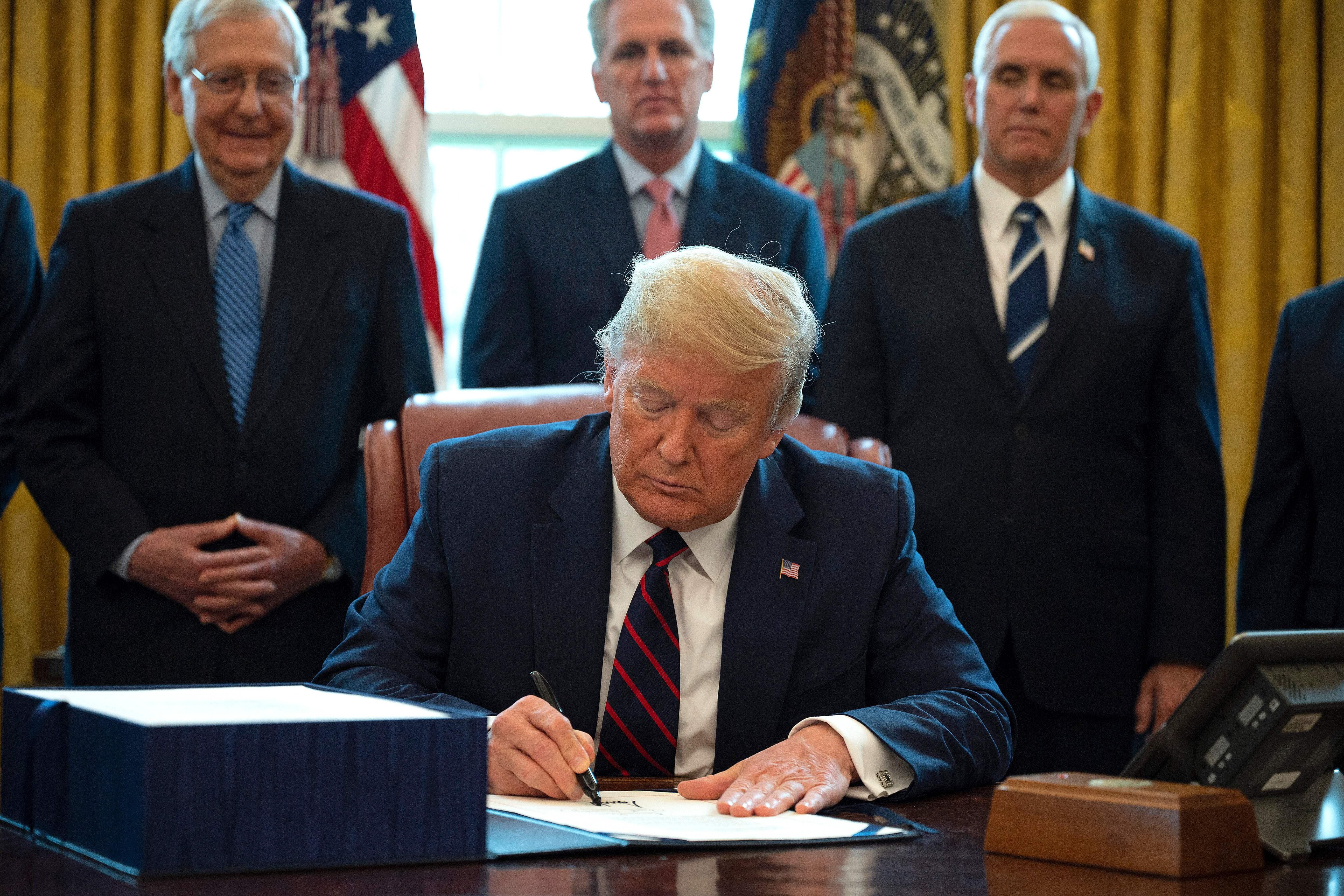2020 stimulus check: How to use the $1,200 coming in the mail
President Donald Trump signed an unprecedented $2.2 trillion coronavirus relief bill Friday that included in the package a $1,200 stimulus check for most adults and $500 per child. Individuals with an adjusted gross income of less than $75,000 or married couples with less than $150,000 will receive the full amount while those earning more will see a reduced check based on their income. According to US Secretary of Treasury Steven Mnuchin, the stimulus checks will be sent out within three weeks.

For many -- such as the 3.28 million who filed for unemployment benefits -- this money will give some needed support during the pandemic, but for some, the funds will be supplemental.
If this is you, here are six ways to make the best use of your stimulus check.
1. Take care of your immediate needs
Above all else, make sure your immediate needs are met. This includes food, monthly bills and rent or mortgage. But before you prioritize rent over, say, food, consider that many jurisdictions, utility companies and even banks are offering relief due to the outbreak. See which programs you can take advantage of, then allocate funds accordingly.
2. Pay your taxes
Mnuchin announced on March 20 the deadline for filing and paying income taxes has been pushed back to July 15. Those who haven't filed -- and will owe the government money -- could use the stimulus check to cover their tax payment. If you haven't already saved for federal and state income taxes and are facing financial hardship, consider giving the money right back to the government.
3. Reduce your debt
One way to secure your financial future is to reduce your debt. A significant payment made to pay down a credit card and loan will help reduce the amount of interest paid on an account carrying a balance. The less interest you have to pay, the more funds you'll have available in the future. But before you do that those debt holders -- some are offering relief in this time period, including deferred payments and waived interest. Just be sure to get the fine print, as some of the assistance offered could delay interest rather than forgive it.
4. Start or add to an existing emergency fund
It can't be stressed enough how important it is to have an emergency fund. This outbreak shows why it's vital as the world can change very quickly. The fund should be equal to the amount of money spent on expenses for three months to six months. While the $1,200 will likely not cover that entire amount, it can be used as a great starting point. A simple savings account can be used to keep the money safe and it will gain a bit of interest over time.
5. Give to those in need
Those fortunate enough to find themselves not needing any of the $1,200 for themselves should consider giving it to those who do. There are many charities fighting the pandemic such as food banks and hospitals. Another consideration is to help out friends and family members who have been hit hard by the pandemic.
6. Open a long-term investment account for your children
Part of the stimulus package provides an additional $500 per child. If your family is already comfortable, there is a way to make use of that money to help their future.
"Provided you don't need this money, consider opening a 529 plan for your child," said certified financial planner Marguerita Cheng. "Your state may offer a tax benefit. This money can grow tax-free. If appropriate, you can even contribute modest amounts of, say, $50 to $100 regularly."
To start a 529 plan, contact your bank or investment firm to see what they have available and what benefits you can have opening one up.
You should read it
- ★ Coronavirus stimulus check is official: Find out if you're eligible for up to $1,200
- ★ Coronavirus $1,200 stimulus check: Find out if you're eligible
- ★ Coronavirus tax extension: Why you still might want to file by April 15
- ★ Strange taxes in the world
- ★ Taxes 2020: How student loans affect your taxes